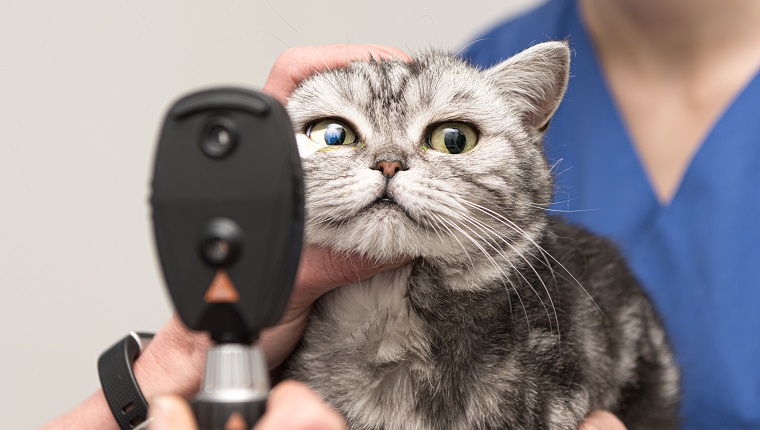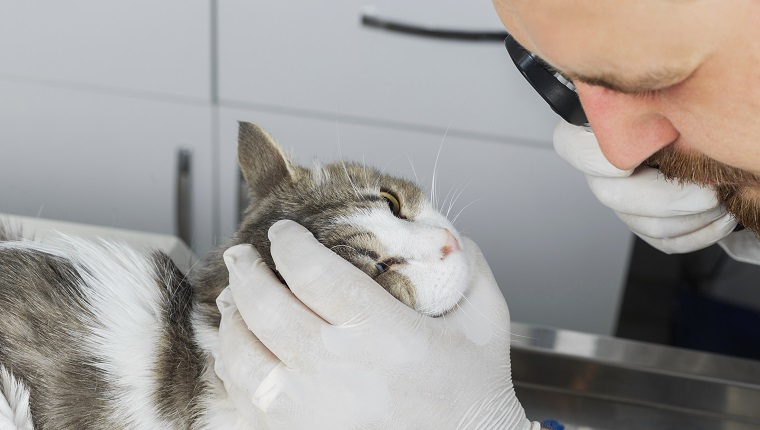Retinal degeneration in cats is a medical condition that can affect a cat’s vision and eventually lead to blindness. It occurs when the cells of the retina degrade. The retina is considered to be part of a feline’s central nervous system.
The condition can affect cats of any breed, age, or sex; although, the Domestic Shorthair, Persian, and Abyssinian breeds seem to have a higher risk for developing it.
If you see signs that your cat might be developing eye issues, then you must consult your veterinarian for a proper diagnosis and advice. Here’s what you should know about the symptoms, causes, and treatments of retinal degeneration in cats.
Symptoms Of Retinal Degeneration In Cats
Retinal degeneration in cats can bring on a wide range of symptoms that generally affect a cat’s vision. Some of the most frequently seen symptoms include:
- Night blindness
- Progressive retinal atrophy (PRA)
- Cataracts
- Loss of central (rather than peripheral) vision
- Dilated pupils
- Feline obesity
- Issues seeing correctly in bright light
Causes Of Retinal Degeneration In Cats

There are a number of causes of retinal degeneration in cats. Some of the most common causes include:
- Hereditary factors
- Taurine deficiency
- Exposure to toxic substances
- Infections
- Vitamin A and E deficiency
- Rod cone degeneration
- Abnormal development of the retina
- Glaucoma
- Metabolic issues
Additionally, the following breeds of feline seem to be most predisposed to developing the condition:
- Persian
- Abyssinian
- Domestic Shorthair
Veterinary Treatments
If you see signs that your cat is developing retinal degeneration, then your veterinarian want to carry out a full physical examination of your feline along with asking about their medical history and any recent circumstances that could have prompted the condition. They may also ask about your cat’s diet, as this can be a contributing factor.
The vet will carry out blood and urine tests. They’ll also place focus on examining your cat’s eyes, which will include looking for any abnormal developments in the retina.
Unfortunately, there is no current effective cure for this condition, and medicines have not proved helpful. However in most cases, addressing your cat’s diet can help, especially ensuring that they are receiving enough taurine.
Your vet can instruct you further on how to formulate a safe and nutritionally-balanced diet for your cat.
In general, cats who are diagnosed with this condition will benefit from a living space that takes into account any loss of vision — for example, by keeping things tidy and blocking dangerous areas to prevent tripping or falling. It’s also important to keep cats with impaired vision as indoor cats.
Does your cat suffer from retinal degeneration? Have you taken any steps to keep your home safe as they lose vision? Then tell us all about it in the comments below.









